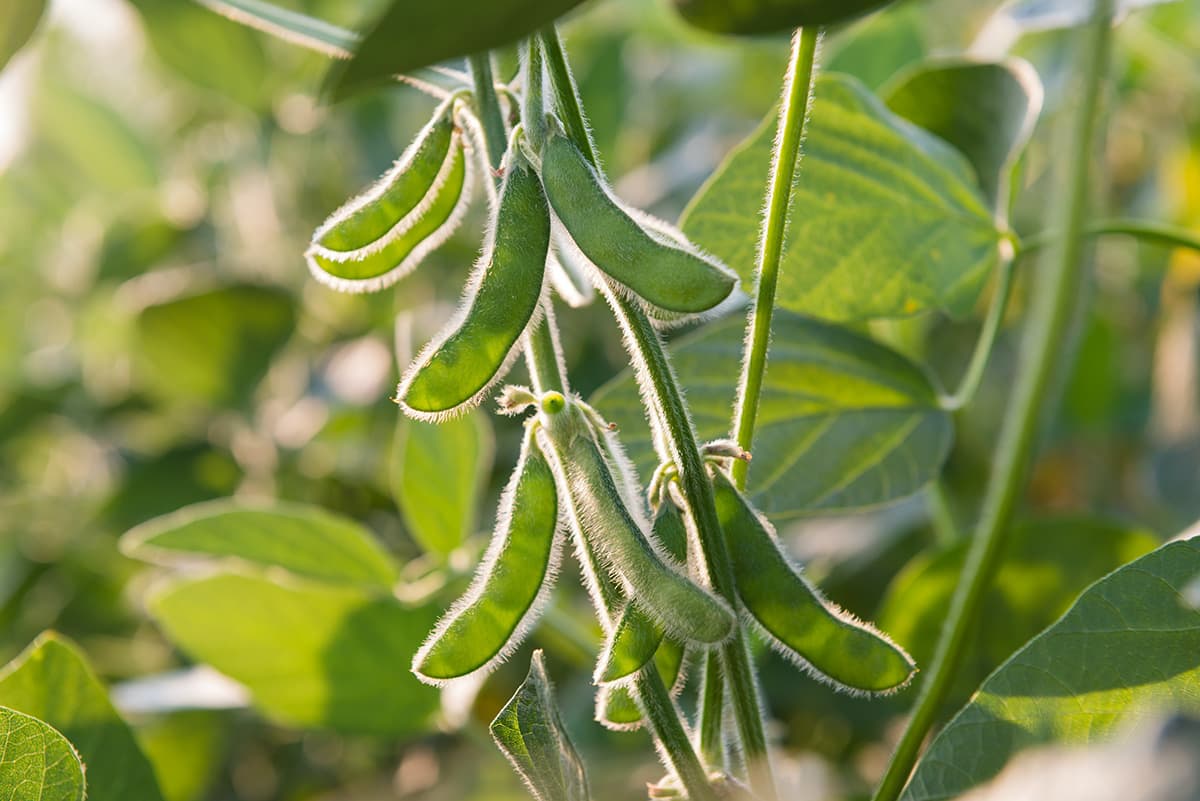
When it comes to soy, I’m not talking about the lab-grown kind that’s in Impossible Burgers. Been there, covered that. I’m also not talking about soy protein powder (here). Now that I’ve got a baby belly for real, I’m curious how regular soy, the kind that’s used to make blocks of tofu, for instance, impacts prenatal health.
Spoiler alert: it’s not something I’ll be feeding my developing baby. For some people, this news might be surprising because soy is supposed to be a healthy plant-based source of protein. And for women going through menopause, soy is supposed to help balance estrogen levels.
The thing is that soy, despite its seemingly innocuous squishy nature, has a dark side…
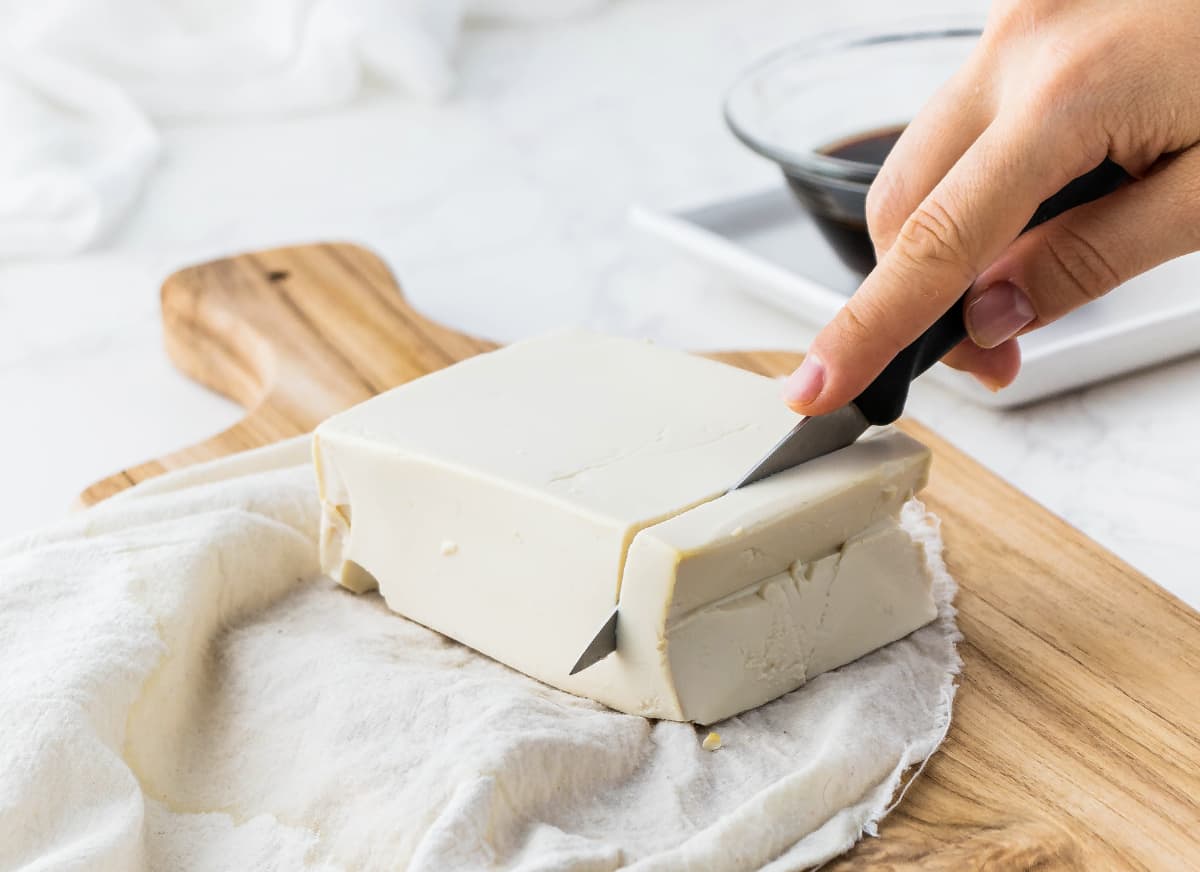
Problem With Soy #1: GMOs
Almost all the soy that’s grown in the U.S. is genetically modified. But don’t just take my word for it. According to the U.S. Department of Agriculture’s own stats, over 90 percent of soybeans are produced using genetically-engineered varieties. I’ll be stoked if my kid becomes an engineer but there’s no way I want my baby eating GMO foods.
Think I’m just being paranoid about GMO soy? Then check out the conclusion of this study from Environmental Sciences Europe:
“Serious adverse events of GM consumption include mortality, tumor or cancer, significant low fertility, decreased learning and reaction abilities, and some organ abnormalities.”
Case closed.
Problem With Soy #2: Pesticides
Is the simple answer to buy organic, non-GMO soy? (FYI: Organic foods are not genetically engineered, so saying organic non-GMO is redundant.)
This is a bit of a tricky question. On one hand, soy is one of the most heavily-sprayed crops. I previously talked about the potential dangers of the world’s most widely used weedkiller: glyphosate (used in the Monsanto brand, Roundup).
Organic soy is not sprayed with glyphosate. But that doesn’t mean it won’t contain traces of it. If an organic farm is located close to a non-organic farm that uses glyphosate, the spray can drift to the organic farm.
Again, it may sound like I’m being a bit kooky worrying about glyphosate drift. But studies have shown that people who live near large farms where herbicides and pesticides are used are at risk.
And that’s not a risk I’m willing to expose my kid to. In fact, according to a study in Diabetes Care, exposure to glyphosate in the first trimester is linked to a higher risk of gestational diabetes, says pregnancy nutrition expert, Lily Nichols, RDN.
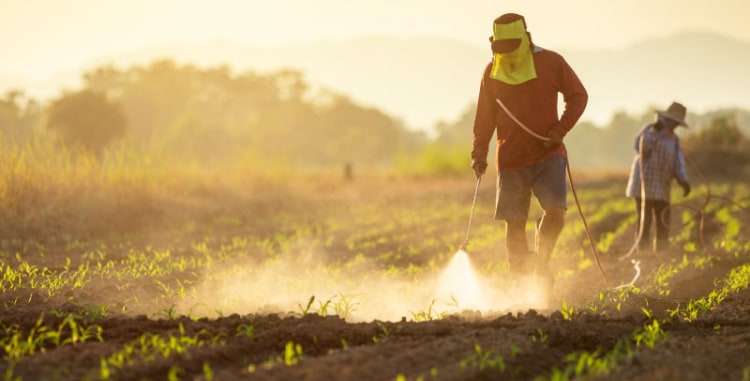
Problem With Soy #3: Environmental Impact
The next problem with soy is how it affects the environment that my child will walk on, in just a few short months!
It turns out that soy has a huge negative impact on the Earth. According to the World Wide Fund for Nature, soy production has more than doubled over the last two decades. While we need more crop yields to feed a growing population, the production of soy is mostly unsustainable and contributes to rising levels of greenhouse gas emissions. Forests and grasslands are cleared to cultivate soy. The result is that not only are natural habitats destroyed, so are the traditional cultures that rely on them.
What’s more is that soy isn’t just grown for human consumption. In fact, approximately 80% is used as feed for livestock. And even if you think the environmental impact of cow farts are greatly exaggerated, there’s no denying that soy usurps a huge amount of resources. It requires immense amounts of water and chemicals to cultivate soy. In addition, the clear-cutting of forests to make room for soy changes the natural composition of the soil.
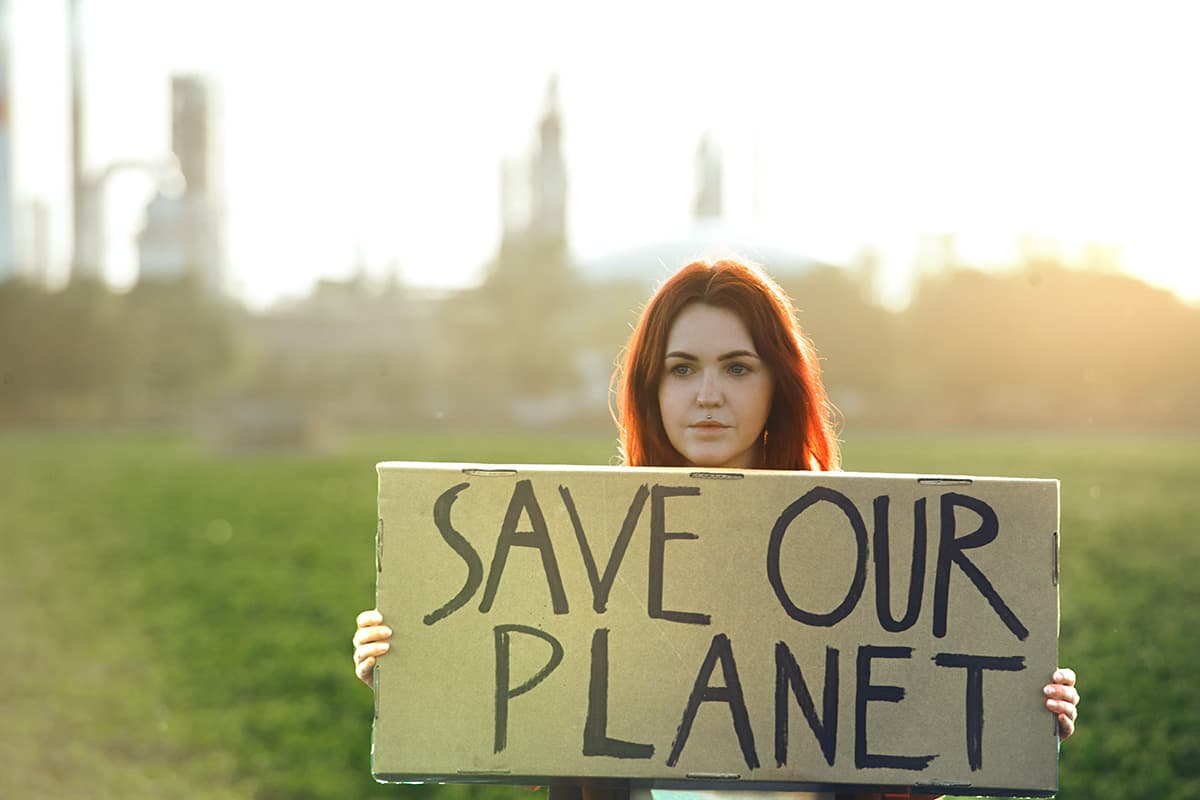
Soy Brings No Joy – Reason #4: Heavy Metals
When soy is cultivated in unhealthy/unnatural soil, the soil becomes eroded and often contains heavy metals like aluminum. If you have an excess amount of aluminum in your body, it creates oxidative stress in the brain, liver and kidney, says a 2022 study in Emerging Medicine International.
Conventional soy is often processed in aluminum containers or boxes instead of the traditional Japanese wooden boxes. The aluminum can leach out of the box into the tofu. And if that’s not bad enough, conventional soy can interfere with the absorption of the good minerals you want in your gut like calcium, zinc and magnesium.
The ultimate reason I’m not going to avoid soy over the next several months? I’ll let the aforementioned Lily Nichols explain. Nichols quotes a study on her website from Pharmacology Biochemistry and Behavior which concludes:
“Aluminum exposure during pregnancy has potential neurotoxic hazards to the in utero developing fetus brain.”
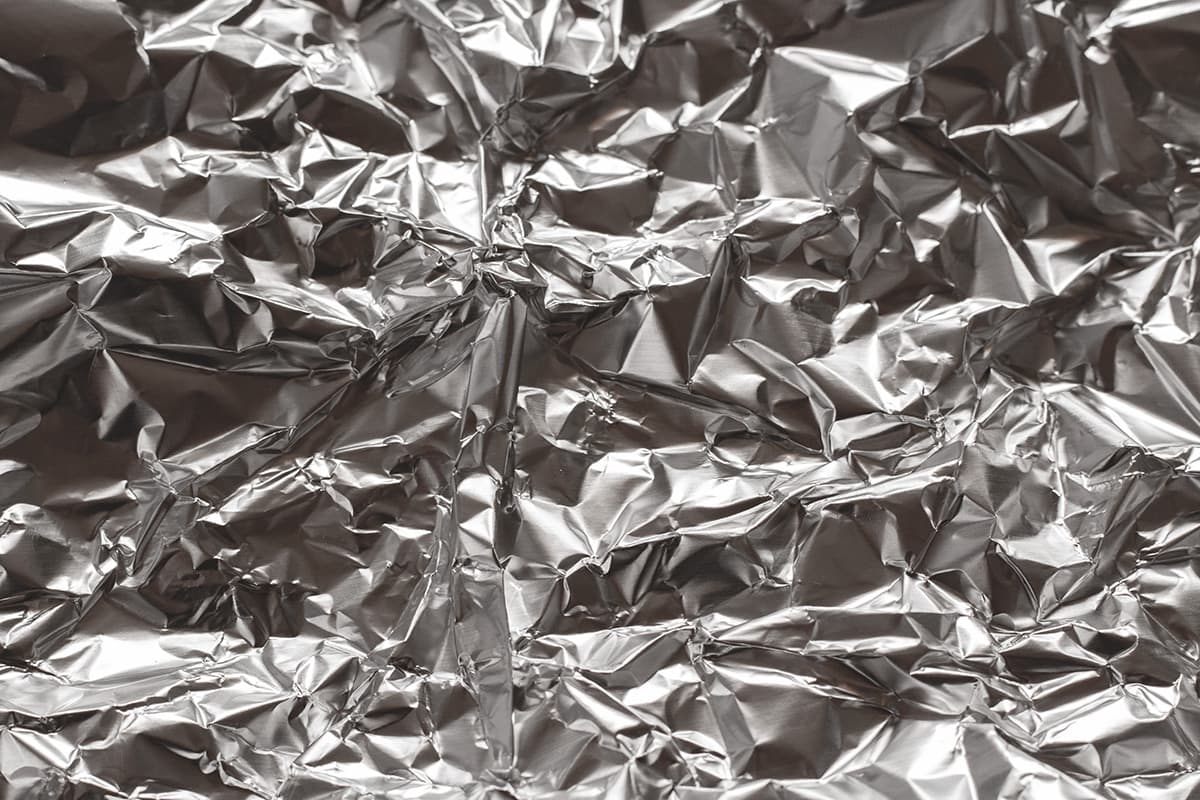
Conclusion: Soy Isn’t Totally Evil
There’s no way I’m chugging gallons of soy milk while I’m pregnant or while I’ll be breastfeeding. However, I’m not suggesting that all soy is bad all of the time. I think with soy, the key is moderation and the type. I’m in favor of fermented soy that’s produced via traditional methods.
Miso soup, tempeh and natto are examples of fermented soy that are healthy sources of plant-based protein. Whole organic soybeans can also be your best friend if you’re looking to manage hot flashes and other menopausal symptoms, not something I’m not looking forward to.
For now, I’ll enjoy being a new mom, soy-free.

